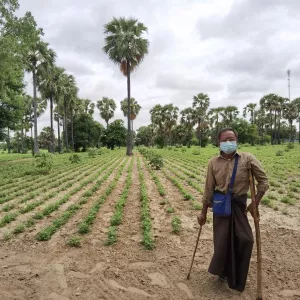Survey: COVID-19 undermines incomes, livelihoods in rural Myanmar
BY CATHERINE RAGASA, ISABEL LAMBRECHT AND MICHAEL WANG While COVID-19 transmission dynamics and impacts have been different in rural and urban areas, big impacts on rural incomes and livelihoods have been observed. In this post, Catherine Ragasa, Isabel Lambrecht and Michael Wang assess income impacts on landed and landless rural people in Myanmar’s Central Dry Zone, comparing bi-monthly surveys during the pandemic to pre-pandemic

Survey: COVID-19 undermines incomes, livelihoods in rural Myanmar
While COVID-19 transmission dynamics and impacts have been different in rural and urban areas, big impacts on rural incomes and livelihoods have been observed. In this post, Catherine Ragasa, Isabel Lambrecht and Michael Wang assess income impacts on landed and landless rural people in Myanmar’s Central Dry Zone, comparing bi-monthly surveys during the pandemic to pre-pandemic baseline data. Income losses were common, from lost sales of agricultural produce, unemployment (farm and especially non-farm) and a falloff in remittances. The authors describe the short-term household coping mechanisms for these hardships and propose agricultural marketing, non-farm income, and information responses to support vulnerable rural households as the pandemic (and other shocks) continue.—John McDermott, series co-editor and Director, CGIAR Research Program on Agriculture for Nutrition and Health (A4NH).
Photo credit: SoeMoe Naing/FAO

